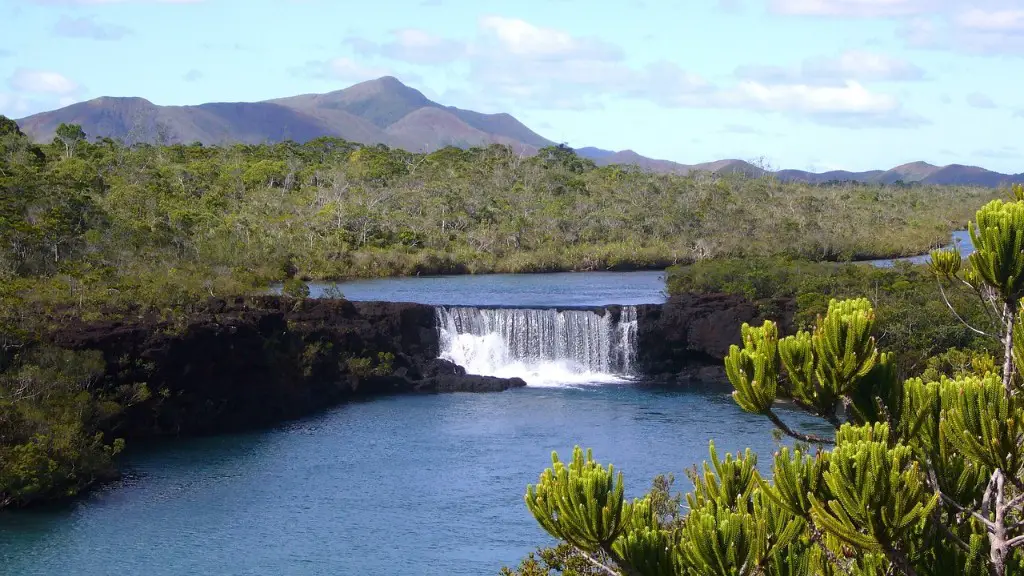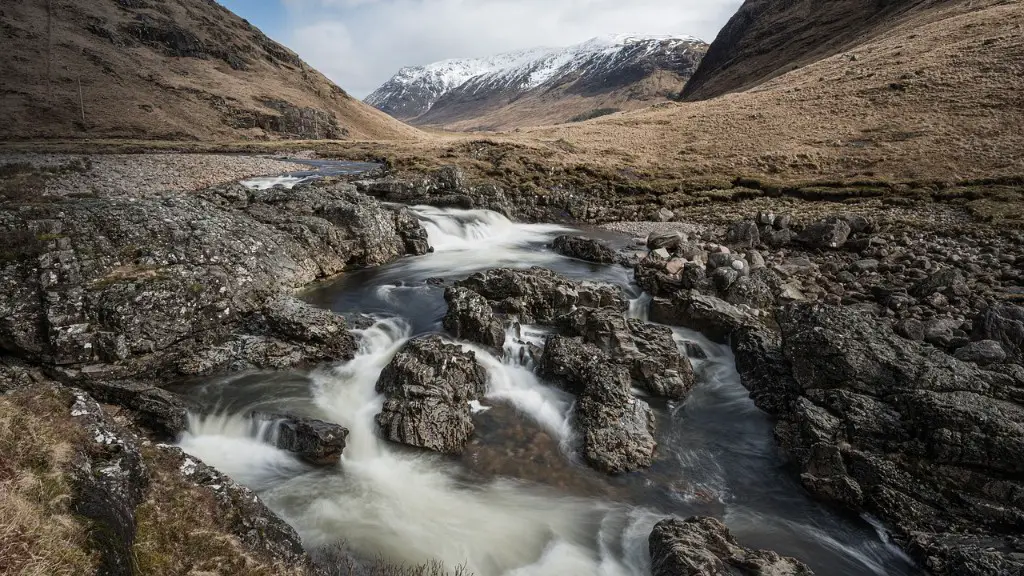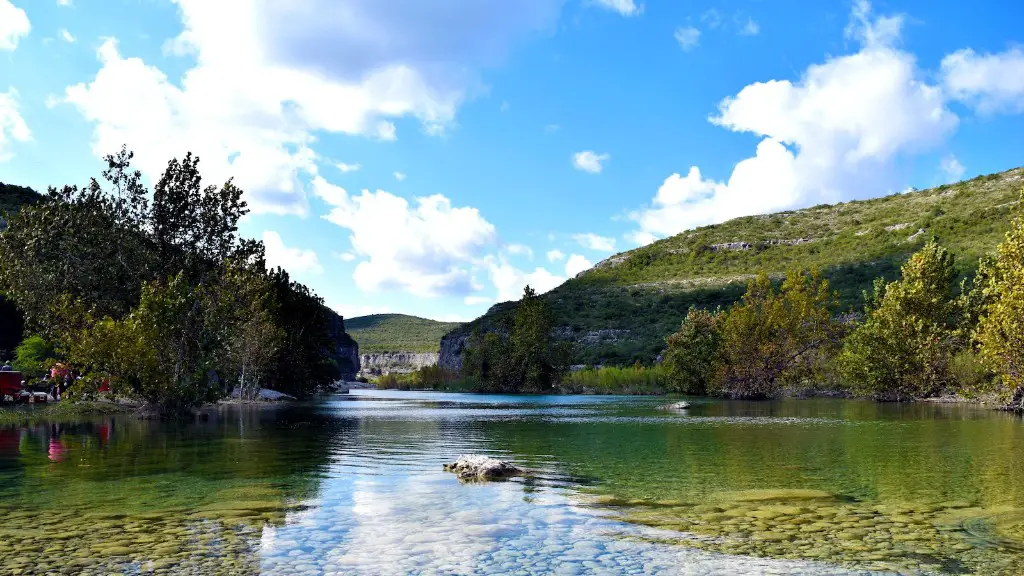Trade on the Mississippi River Is Very Significant
The Mississippi River is an important trade route that carries goods, services, and commodities from Minnesota to Louisiana and the Gulf Coast, and has been a major means of transportation for the US economy for centuries. trad. The US Army Corps of Engineers states that nearly 400 million tons of cargo are moved annually on the Mississippi River, with a total value of $600 billion.
The majority of the trade on Mississippi, around 70%, is made up of raw materials such as coal, grain, chemicals, cement, and petroleum products, with the other 30% being industrial and manufactured goods. Transportation by barge is the most cost-effective and efficient way to transport large amounts of goods over long distances. It also has a low impact on the environment compared to other transportation methods.
The amount of trade that goes down the Mississippi River varies greatly by season. According to the US Army Corps of Engineers, most of the traffic on the Mississippi is during the summer months, when grain shipments and coal are at their peak. During the winter months, traffic decreases as the colder temperatures make it difficult for barges to navigate the river. The US Army Corps of Engineers also notes that there is an increase in traffic on the Mississippi in the spring, as river levels rise with spring rains.
Experts have noticed a steady increase in the amount of trade that is conducted on the Mississippi River over the years, due to the availability of lower-cost transportation and larger barge sizes. Recently, railroad companies have become more interested in the river for transporting goods, as the activity of railroads on the Mississippi has increased significantly in the past few years. This is expected to continue to increase in the near future.
In addition to being an efficient way of transport, the Mississippi river is also a large source of recreational activities. There are numerous fishing, boating, and hiking opportunities along the river, allowing people to easily access and enjoy it. Many cities and towns also offer festivals and events along the river, encouraging tourists and locals alike to experience the river in a unique way.
The Mississippi River is a valuable resource for the U.S. economy and the amount of trade that goes down the river is continuing to increase. This represents an immense financial opportunity for the country, especially for regions along the river which could benefit from an increase in activity and jobs. This could be a source of development for the years to come and should be taken seriously.
Tourism and Recreation on the Mississippi
Tourism along the Mississippi River has grown significantly in recent years, with people from all over the world choosing to explore the beauty of the river. These tourists come for recreational activities such as fishing, boating and hiking, as well as to take in the breathtaking scenery. In addition, there are many festivals and events that are held along the river throughout the year, drawing in both tourists and locals alike. This helps to create a dynamic atmosphere that appeals to all.
The Mississippi River serves as an important source of leisure and entertainment, with people spending countless hours exploring it. With so many places to explore, the Mississippi holds an aura of mystery and adventure, leaving visitors and locals with plenty to experience and explore. From visiting historical sites to catching a glimpse of a bald eagle, the Mississippi is a great place to spend time in.
The Mississippi River has become an appealing destination for both tourists and locals and can provide important economic benefits as well. According to the Mississippi River Unified Group (MRUG), the cultural and recreational activities that take place along the Mississippi River generate $207 billion in total economic activity and support over 1.4 million jobs nationally. For states and regions along the river, this could be a major contributor to economic growth.
The Mississippi River has a vital connection to the community, embodying a deep-rooted culture and history. Its presence in many towns and communities adds character to those locations and creates a sense of pride. For these reasons and more, the river is a vital part of the social fabric of many places and it is important to preserve and cherish it.
Conservation and Protection of the Mississippi River
The Mississippi River is an important waterway and should be conserved and protected in order to ensure its long-term sustainability. The US Army Corps of Engineers works diligently in order to keep the river safe and navigable, with activities such as dredging, flooding management and the construction of levees and locks. These activities help to keep the river operational, but also come at great expense.
In addition to the work of the US Army Corps of Engineers, many environmental groups and organizations have joined in the effort to keep the river healthy for generations to come. These organizations strive to protect the river from pollution and preserve its ecosystem, which is vital for the wildlife that inhabits it. The Mississippi River Unified Group (MRUG) is a coalition of organizations dedicated to the protection and improvement of the river and works closely with the US Army Corps of Engineers.
Conserving and protecting the Mississippi River is a task that must be taken seriously. As the second-longest river in the United States and a major source of transportation for goods and commodities, maintaining the health of the Mississippi River is of great importance. It is a valuable resource that must be cared for, so that it can continue to benefit the economy and environment for many years to come.
Investing in the Mississippi River
Investing in the Mississippi River can provide economic growth and numerous opportunities for people in the area. Due to the large amount of trade that takes place on the Mississippi River, investing in infrastructure and activities around the river can be beneficial. For example, investing in ports and riverfronts can provide jobs and attract tourists, while also providing recreational and commercial opportunities.
Public-private partnerships are becoming increasingly common in order to fund projects around the Mississippi River. These investments can be used to improve the waterway, invest in infrastructure, and create new jobs. This could lead to a stronger economy, improved transportation networks and better access to resources and services. In addition, it could also improve the long-term conservation and protection of the Mississippi River, allowing it to remain a vital resource for generations to come.
Investing in the Mississippi River is an important part of preserving its long-term sustainability. It is a valuable resource that can provide countless economic, environmental and recreational opportunities for people. Though it may require a great deal of effort and resources to do so, investing in the Mississippi River is essential for the continued growth and well-being of the US economy and its people.
The Impact of Technology on the Mississippi River
Technology has had a major impact on the Mississippi river in terms of trade, transportation and exploration. With the advent of more efficient methods of transportation and communication, it is now easier than ever to move goods and services up and down the river. This has made it a major source of trade and commerce, with large amounts of goods and commodities moving through it on a daily basis.
The use of technology is also allowing for a more efficient navigation along the Mississippi River. Automated navigation systems, such as GPS and automated pilot systems, have revolutionized how people move through and explore the river. They allow people to more easily find their way along the Mississippi, allowing them to save time and money while also being safe.
Technology has also allowed for better communication along the river. With the use of satellite technology, navigation and communication can be done in real-time. This allows for more efficient communication between boats, ships and the people along the river, and helps to monitor the safety and well-being of everyone involved.
Technology has had a major impact on the Mississippi River, providing more efficient ways to trade, transport and explore it. It has revolutionized how people use and experience the river, and has allowed it to be an even more vital resource for the US economy. As technology continues to evolve, it is likely that the Mississippi River will continue to benefit from its advances.
Economic Opportunities on the Mississippi River
The Mississippi River is an important source of economic opportunity for many communities and states along its length. It provides countless job opportunities and is home to numerous industries that generate revenue and economic growth in the area. The US Army Corps of Engineers estimates that trade and transportation on the Mississippi River generates $100 billion in economic activity annually, contributing significantly to the US economy.
The industries along the Mississippi River range from tourism, shipping, and fisheries to agriculture, manufacturing, and energy production. These industries work together to generate revenue and create jobs in the areas along the river. Tourism is one of the main contributors, with people traveling to the region to take part in recreational activities such as fishing and boating, as well as to explore the rich history of the river.
In addition to providing job opportunities and economic growth, the Mississippi River is also an important source of energy production. The river is home to numerous hydroelectric power plants and provides a constant source of renewable energy that is vital for the US economy. The river also provides a source of irrigation for agricultural lands along its length, which helps to increase crop yields and boost the local economy.
The Mississippi River is a vital resource for the US economy and provides many economic opportunities for those along its length. Its vast amount of resources and industries contribute to the country’s economic output and provide jobs and growth. The river’s importance to the US economy should not be underestimated, as its value is immeasurable and undeniable.





